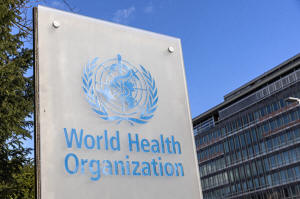No link between mobile phones and brain cancer, WHO-backed study says
 Send a link to a friend
Send a link to a friend
 [September 04, 2024]
LONDON (Reuters) -There is no link between mobile phone use and
an increased risk of brain cancer, according to a new World Health
Organization-commissioned review of available published evidence
worldwide. [September 04, 2024]
LONDON (Reuters) -There is no link between mobile phone use and
an increased risk of brain cancer, according to a new World Health
Organization-commissioned review of available published evidence
worldwide.
Despite the huge rise in the use of wireless technology, there has not
been a corresponding increase in the incidence of brain cancers, the
review, published on Tuesday, found. That applies even to people who
make long phone calls or those who have used mobile phones for more than
a decade.
The final analysis included 63 studies from 1994-2022, assessed by 11
investigators from 10 countries, including the Australian government’s
radiation protection authority.
The work assessed the effects of radiofrequency, used in mobile phones
as well as TV, baby monitors and radar, co-author Mark Elwood, professor
of cancer epidemiology at the University of Auckland, New Zealand, said.
"None of the major questions studied showed increased risks," he said.
The review looked at cancers of the brain in adults and children, as
well as cancer of the pituitary gland, salivary glands and leukemia, and
risks linked to mobile phone use, base stations, or transmitters, as
well as occupational exposure. Other cancer types will be reported
separately.

[to top of second column]
|

The World Health Organization (WHO) logo is seen near its
headquarters in Geneva, Switzerland, February 2, 2023. REUTERS/Denis
Balibouse/File Photo
 The review follows other similar
work. The WHO and other international health bodies have said
previously there is no definitive evidence of adverse health effects
from the radiation used by mobile phones, but called for more
research. It is currently classified as "possibly carcinogenic", or
class 2B, by the International Agency for Research on Cancer (IARC),
a category used when the agency cannot rule out a potential link.
The agency's advisory group has called for the classification to be
re-evaluated as soon as possible given the new data since its last
assessment in 2011.
WHO's evaluation will be released in the first quarter of next year.
(Reporting by Jennifer Rigby; Editing by Sharon Singleton and Ed
Osmond)
[© 2024 Thomson Reuters. All rights reserved.]This material may not be published,
broadcast, rewritten or redistributed.
Thompson Reuters is solely responsible for this content. |